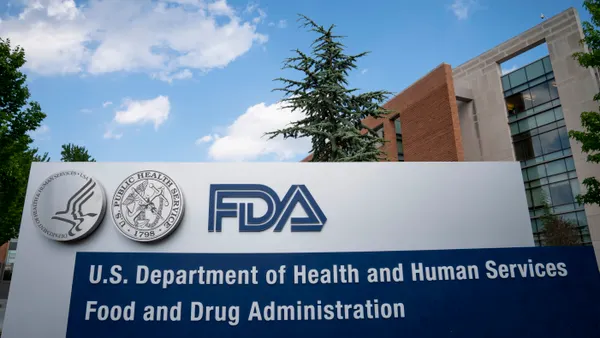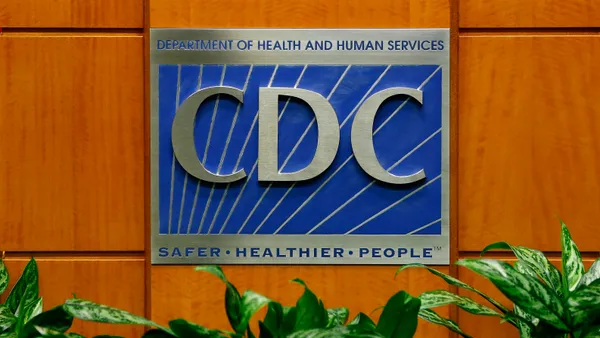The Food and Drug Administration plans to discard warning labels for hormone therapies for menopausal women, undoing decades-old language cautioning that treatments may increase the risk of cancer or heart disease.
In a statement Monday, the FDA said it is initiating the removal of “boxed” warnings for all hormone replacement therapies, or HRTs. That announcement was issued alongside a press conference from the U.S. Department of Health and Human Services as well as an op-ed FDA Commissioner Martin Makary published in the Wall Street Journal. The decision was issued following a “comprehensive review of the scientific literature,” feedback from an expert panel in July, and a public comment period, the agency said.
“Millions of women were told to fear the very therapy that could have given them strength, peace and dignity through one of life's most difficult transitions, menopause. That ends today,” HHS Secretary Robert F. Kennedy Jr. said during the press conference.
HRT can provide relief from the “vasomotor symptoms,” or hot flashes, in women going through menopause. But it’s not always prescribed because of “black box” warnings — the agency’s most severe — alerting clinicians of an increased risk of cancer and cardiovascular events. The FDA’s current labeling also cautions against using estrogen for the prevention of cardiovascular disease or dementia.
The labeling originated from a study conducted by the Women’s Health Initiative and that evaluated the use of estrogen plus progestin in postmenopausal women. The study was stopped early in 2002 after investigators detected an increased risk of breast cancer and heart disease. Two years later, another arm of the trial evaluating only estrogen was also stopped early due to a higher risk of stroke.
Other study results have pointed to more mixed or even positive effects not only on hot flashes and night sweats, but heart health and the likelihood of bone fractures or Alzheimer’s disease, leading to years of intense debate about the benefits and risks of HRT. Some medical associations support broad use, but still note risks and suggest discussions with physicians.
Makary, for his part, has long been critical of the safety warnings for HRT and argued for broader use. In his 2024 book “Blind Spots,” Makary questioned the evidence supporting a link to cancer and contended multiple long-term benefits were being overlooked. A 12-member panel he convened in July all held similar views and called for HRT’s labeling to be updated.
“In my professional opinion, the demonization of hormone replacement therapy for perimenopausal women and the underappreciation of its health benefits ranks among the greatest mistakes of modern medicine,” Makary wrote in the op-ed Monday.
Still, the decision was made in an unorthodox fashion. July’s panel was an informal discussion, not the typical FDA advisory committee that rigorously reviews new safety data. Public comments were also only allowed afterwards.
When asked about the FDA’s decision not to convene an advisory panel, Makary said those committees are “bureaucratic, long, often conflicted and very expensive.”
“We can have an active, robust discussion as a group of medical experts spontaneously, so we're doing more of that,” he said.
Makary added that the panelists in July conducted a “comprehensive review” of the scientific literature and came to the conclusion the FDA accepted.
Alongside its announcement, the FDA also approved two treatments: a generic version of Premarin for menopausal symptoms, and a non-hormonal therapy for hot flashes.
















